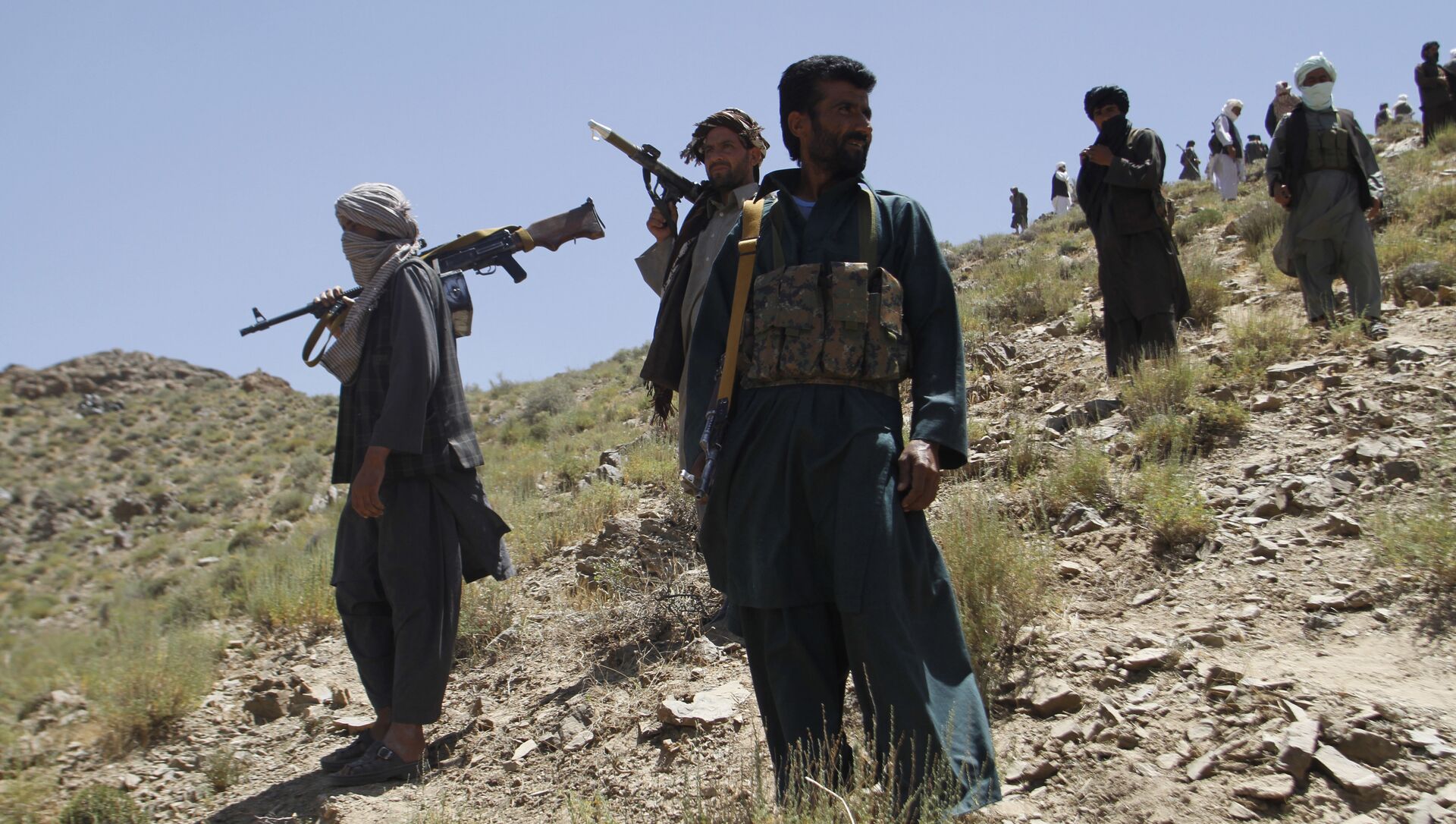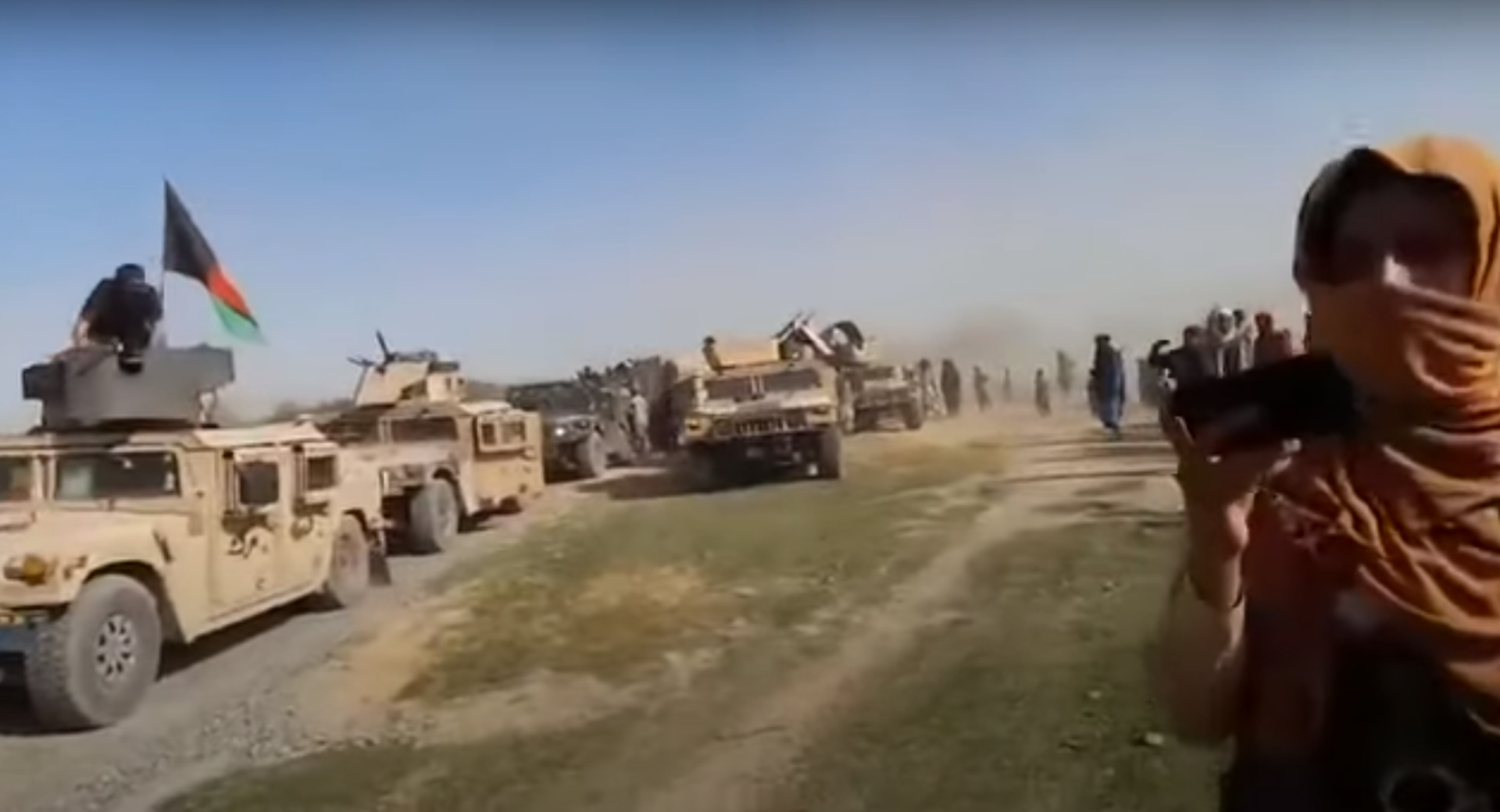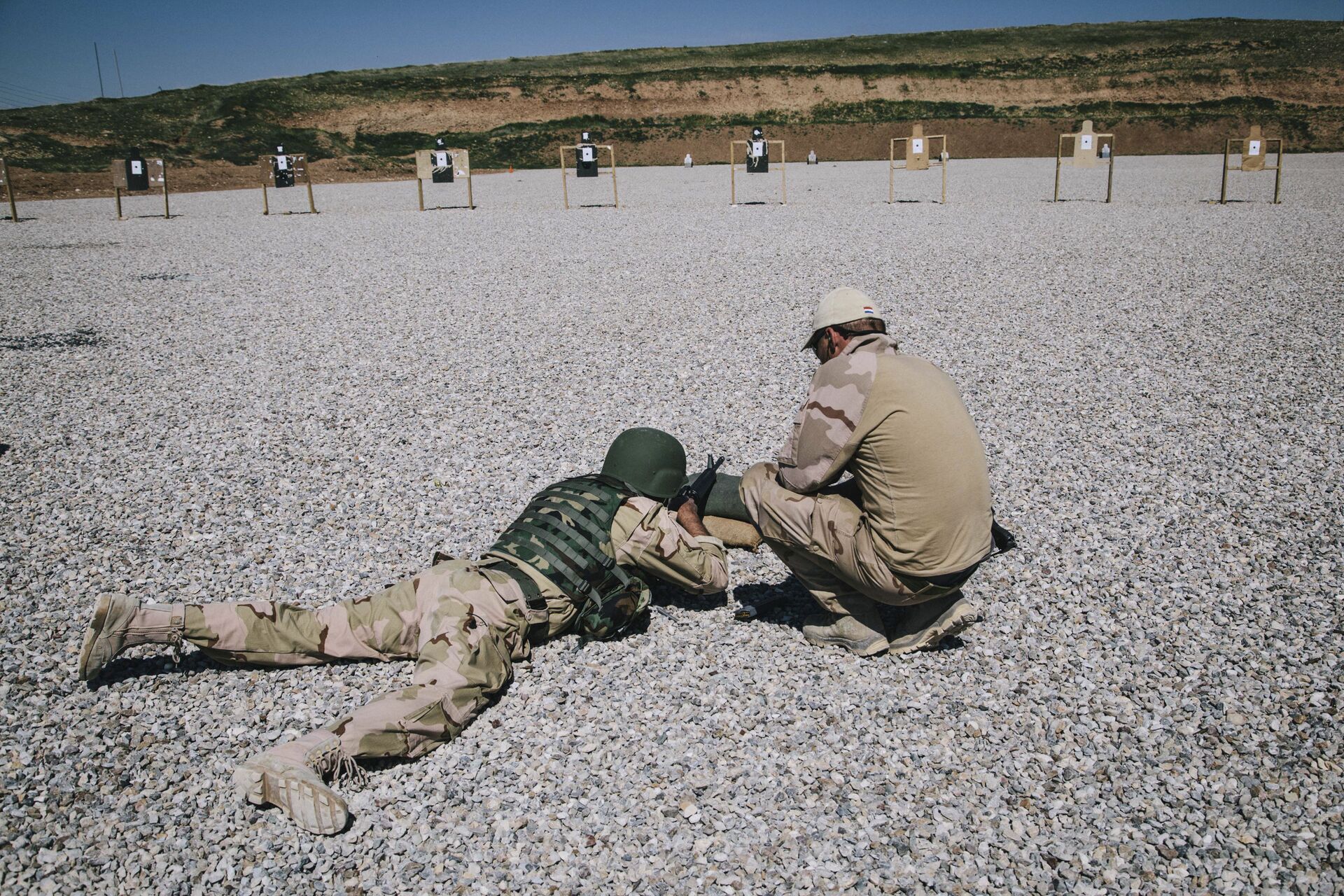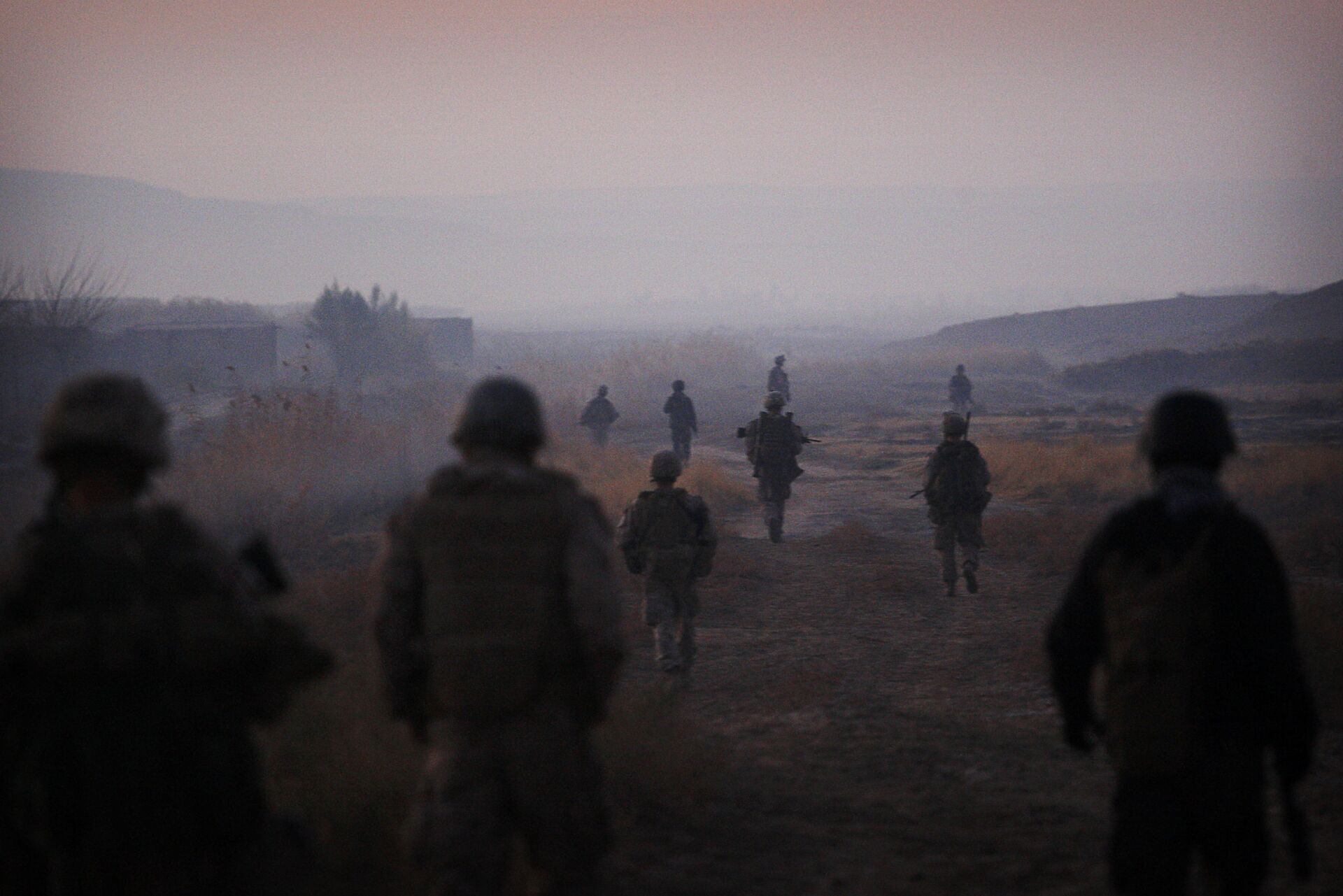NATO Troop Withdrawal from Afghanistan Leaves Locals Under ‘Uncontrollable Fire' as Taliban Surges

© AP Photo / Allauddin Khan
Subscribe
The withdrawal of US and NATO forces from Afghanistan, to be completed by 11 September, comes amid a surge in violence by the Taliban movement, as it seizes dozens of districts in the country’s north. Afghan interpreters have been increasingly facing threats for helping foreign forces throughout the last 20 years of the war in their native land.
Afghans are “afraid for their lives” and feel “helpless” in the face of the Taliban* onslaught sweeping across the country.
According to a former soldier, people are scared for their future amid fears the government could collapse once the last of the US and NATO troops have been withdrawn from the country.

Screenshot appearing to show the surrender of Afghan National Army troops to the Taliban, June 2021.
© Photo : YouTube / Documented Madness
“The situation here is really bad and I am afraid of my future because the Taliban everyday they capture more districts and Government is about to collapse and we lose everyday hundreds of our soldiers. So I am really afraid of my life and unfortunately I can't leave the country because there is no way for me,” the man was cited by the Daily Mail as saying.
Amid the ongoing departure of foreign forces from Afghanistan, set to be completed by 11 September, the emboldened Taliban movement has been taking advantage of the situation and seizing swathes of territory from government forces.
“Now the war is very fierce in Afghanistan and the Taliban day by day get control of more areas and Afghan people they are unhappy… because the foreign forces left Afghan people in an uncontrollable fire… Taliban believes those people that they worked with foreigners they helped Americans and NATO forces to occupy Afghanistan,” the former soldier was cited as saying.
According to the unnamed Afghan, the Taliban were sure to target all those people that worked [with] foreigners. The situation will grow even worse once the movement claims control of the whole of Afghanistan, the individual added.

In this March 9, 2016 file image, a Dutch army trainer, right, helps a Kurdish Peshmerga soldier during a military training session at a shooting range, at Bnaslawa Military Base in Irbil, northern Iraq.
© Alice Martins
As forces are withdrawing from Afghanistan, thousands of Afghans who have served alongside the troops as translators or interpreters remain in the country fearing Taliban retaliation. Relocation options vary from country to country.
In June, the New York Times reported that Washington would relocate between 20,000 and 100,000 Afghan citizens who worked for the American government together with family members.
President Joe Biden announced on 24 June that applicants would be flown to third countries in August where they can wait until their special immigrant visas are approved.
In 2013, the UK announced the Ex Gratia Scheme (EGS) to relocate eligible Afghan staff to the UK. By the end of 2020, over 1,400 interpreters and their families had been transferred, with an estimated around 3,000 more to follow them, according to The New York Times.
‘Never Intended to be Permanent’
This comes as most British troops assigned to NATO's mission in Afghanistan have already left, Prime Minister Boris Johnson said a statement to the House of Commons, adding there could "never be a perfect moment" to withdraw, but it was "never intended to be permanent".
Joe Biden announced in April that American troops would leave Afghanistan by 11 September – the anniversary of the 9/11 terror attacks on the World Trade Center and the Pentagon in the US in 2001. The US had failed to fully withdraw some 2,500 troops in the country as part of a 9,600-strong NATO mission in the war-torn nation by the previous administration's May 1 pullout.

United States Marines from the 2nd Battalion 2nd Marines "Warlords" and Afghan National Army soldiers walk in formation during an operation in the Garmsir district of the volatile Helmand province, southern Afghanistan, Wednesday, Dec. 23, 2009
© AP Photo / Kevin Frayer
However, on 8 July President Biden informed the public that the US military had "achieved" its goals in Afghanistan, and a complete withdrawal of US service members from the country will conclude on 31 August.
"The United States did what we went to do in Afghanistan: get the terrorists who attacked us on 9/11 and get Osama bin Laden," Biden said.
Recent reports citing the US intelligence community assessments have suggested the current Afghan government could collapse once the US officially withdraws from Afghanistan. The Islamist group now control about two-thirds of the Afghan-Tajik border as their surge continues, Russia's foreign ministry revealed on Friday.
The ministry spokeswoman Maria Zakharova said Moscow was ready to take “additional measures” to “prevent aggression” on its ally Tajikistan by the Taliban.
*The Taliban is a terrorist organisation banned in Russia.

